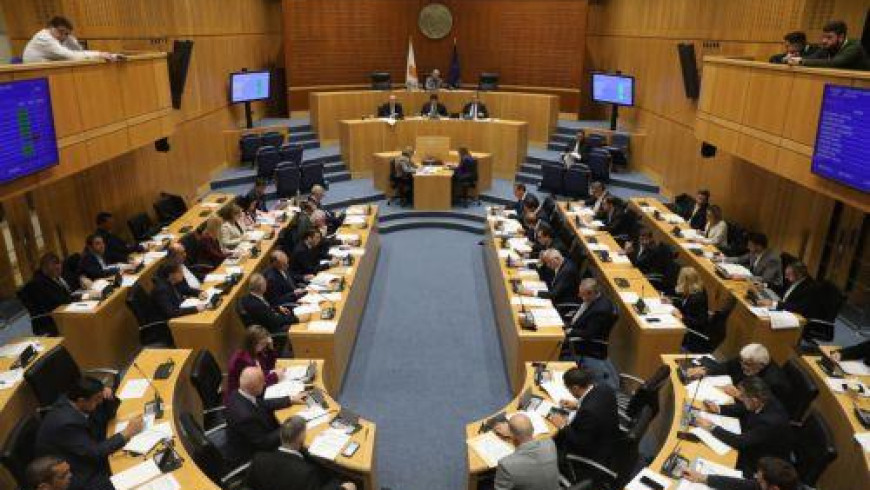
Members of the Parliamentary Committee on Commerce put pressure on the Central Bank and banks as regards the calculation of loan interest on the basis of 360 days instead of 365 days.
Essentially, with the formula applied for the calculation of the annual interest, banks are earning five additional days of interest while borrowers are burdened with the annualized interest based on 360 days.
The financial commissioner Pavlos Ioannou proceeded to a related study, where a number of loan agreements and other credit facilitations, between borrowers and licensed credit institutions, a 360 days year is used as a basis for the calculation of the interest rate.
The fixed annual interest rate in contracts is converted to a daily rate for 360 days. Then, the calculation of the annualized interest is applied for 365 or 366 days, depending on the case, on the basis of the daily rate.
Committee members claimed that the banks are cheating and stealing from borrowers and reacted strongly when a CB spokesperson said that there are no complaints from consumers.
The financial commissioner Pavlos Ioannou said that the method of calculation of the interest rate is illegal stressing that there is a decision of the Supreme Court.
Mr. Ioannou spoke of unfair terms set by the banks, noting that during his discussion with bankers it was reported that some banks apply this formula and some don’t.
A spokesperson of the Ministry of Finance said that if there is going to be a correction of this practice, the impact on banks should be examined.
On behalf of the ministry of commerce it was noted that two laws of consumer credit apply and they do not specify how to calculate the lending rate but only the total annual rate.
According to a spokesman of the ministry, there cannot be a compensation but the borrower may appeal to the court to decide whether the clause is unfair.
A spokesperson of the CB noted that there are two laws that apply to specific products, noting that the financial commissioner’s examination falls outside the scope of the law.
He said that unfair consumer credit clauses cover mortgages of up to €200 thousand.
He noted that the CB has not received any complaints from borrowers, stressing that the CB requires banks to comply.
"According to the law," he said, "banks are required to calculate interest on the basis of 365 days."
He added that the problem will disappear with the new directive to be issued in March 2016.
A representative of the association of banks said that with help from external legal advisers they have found that there is no directive on how to calculate the lending rate.
He noted that the Supreme Court ruling does not make the 360 days invalid.
The committee members decided to continue the discussion next week to submit proposals on how to solve the problem, as they did not receive satisfactory responses from the banks and the Central Bank.
Essentially, with the formula applied for the calculation of the annual interest, banks are earning five additional days of interest while borrowers are burdened with the annualized interest based on 360 days.
The financial commissioner Pavlos Ioannou proceeded to a related study, where a number of loan agreements and other credit facilitations, between borrowers and licensed credit institutions, a 360 days year is used as a basis for the calculation of the interest rate.
The fixed annual interest rate in contracts is converted to a daily rate for 360 days. Then, the calculation of the annualized interest is applied for 365 or 366 days, depending on the case, on the basis of the daily rate.
Committee members claimed that the banks are cheating and stealing from borrowers and reacted strongly when a CB spokesperson said that there are no complaints from consumers.
The financial commissioner Pavlos Ioannou said that the method of calculation of the interest rate is illegal stressing that there is a decision of the Supreme Court.
Mr. Ioannou spoke of unfair terms set by the banks, noting that during his discussion with bankers it was reported that some banks apply this formula and some don’t.
A spokesperson of the Ministry of Finance said that if there is going to be a correction of this practice, the impact on banks should be examined.
On behalf of the ministry of commerce it was noted that two laws of consumer credit apply and they do not specify how to calculate the lending rate but only the total annual rate.
According to a spokesman of the ministry, there cannot be a compensation but the borrower may appeal to the court to decide whether the clause is unfair.
A spokesperson of the CB noted that there are two laws that apply to specific products, noting that the financial commissioner’s examination falls outside the scope of the law.
He said that unfair consumer credit clauses cover mortgages of up to €200 thousand.
He noted that the CB has not received any complaints from borrowers, stressing that the CB requires banks to comply.
"According to the law," he said, "banks are required to calculate interest on the basis of 365 days."
He added that the problem will disappear with the new directive to be issued in March 2016.
A representative of the association of banks said that with help from external legal advisers they have found that there is no directive on how to calculate the lending rate.
He noted that the Supreme Court ruling does not make the 360 days invalid.
The committee members decided to continue the discussion next week to submit proposals on how to solve the problem, as they did not receive satisfactory responses from the banks and the Central Bank.














 3287.99
3287.99 1275.09
1275.09
